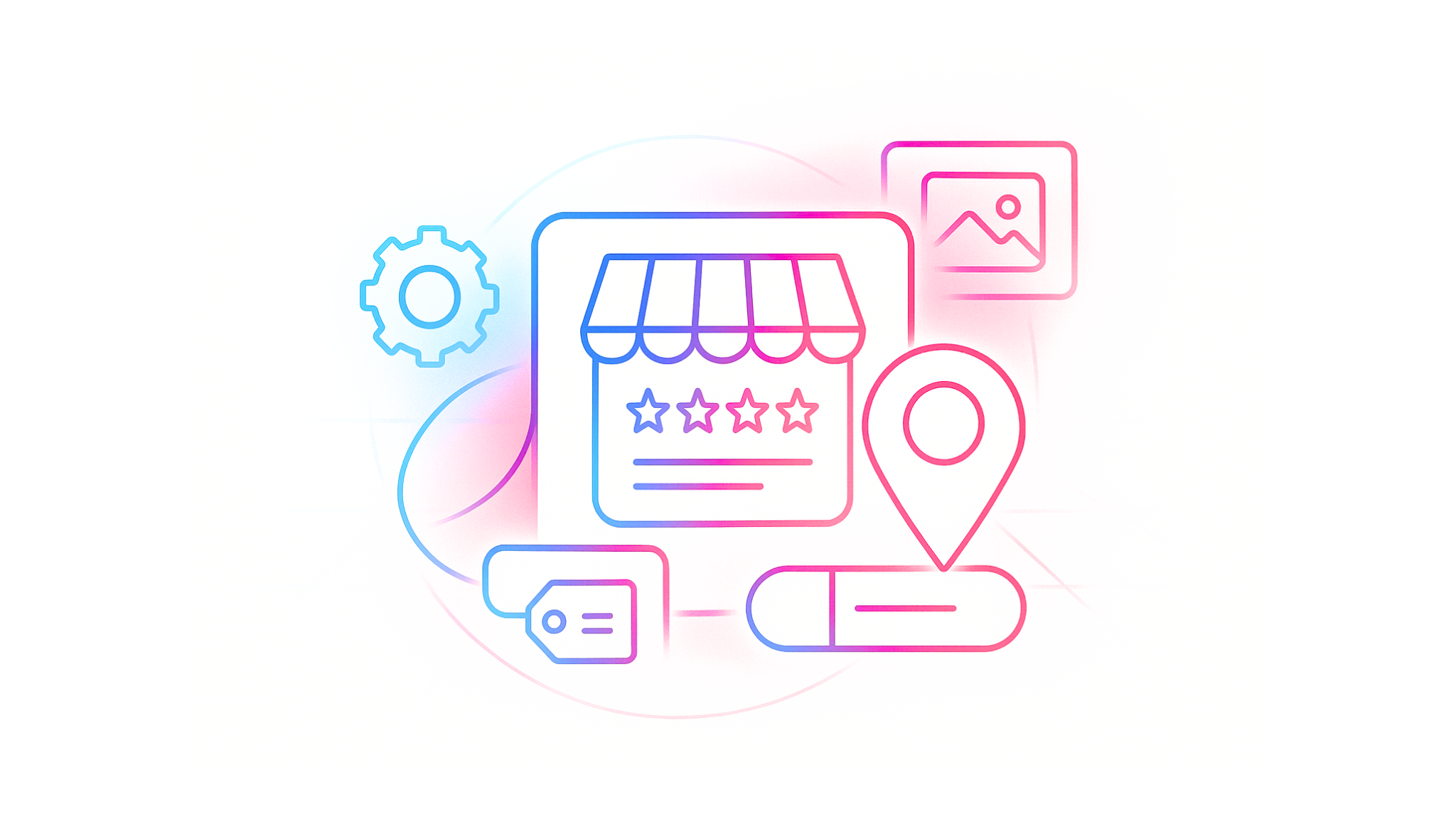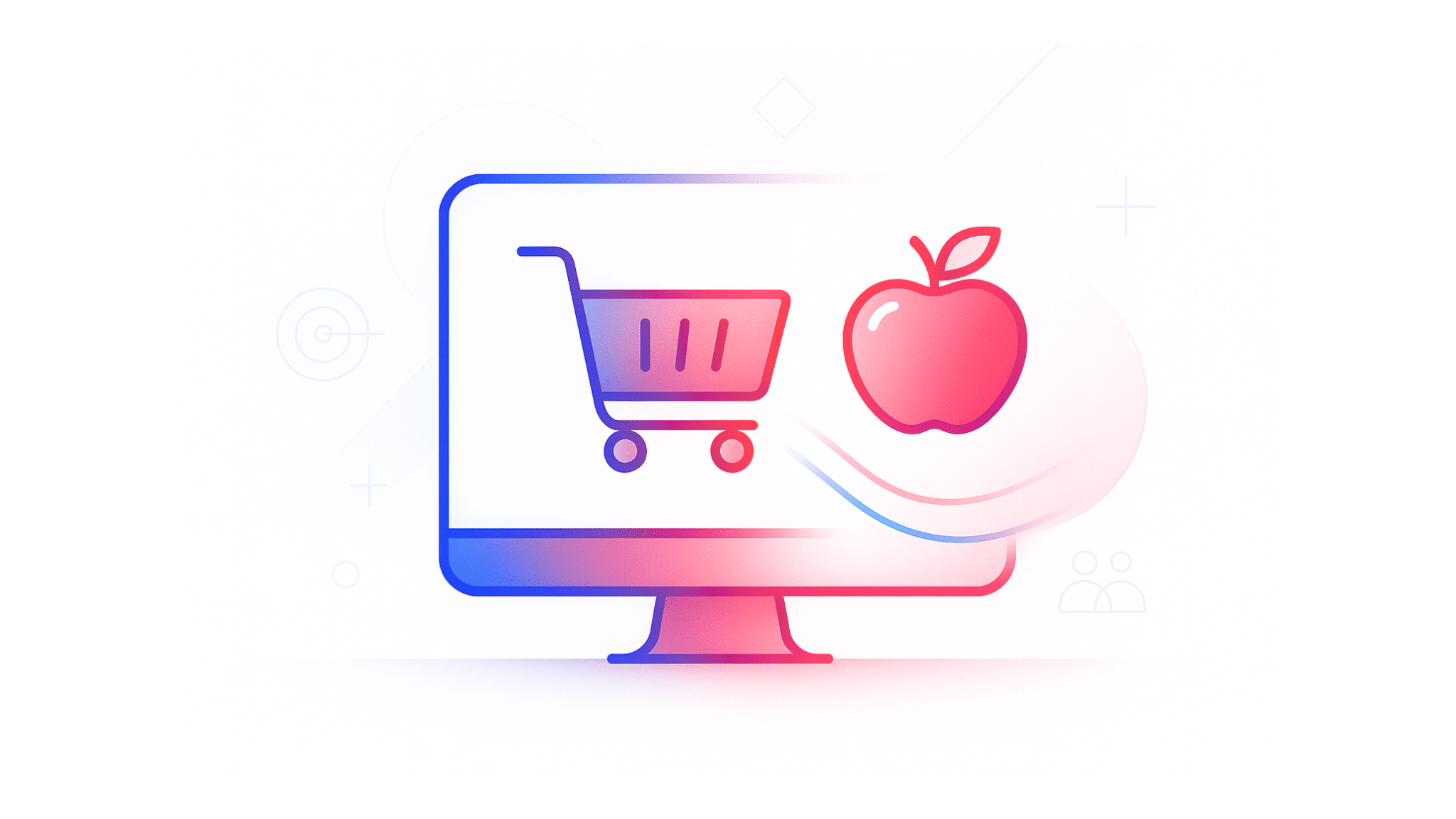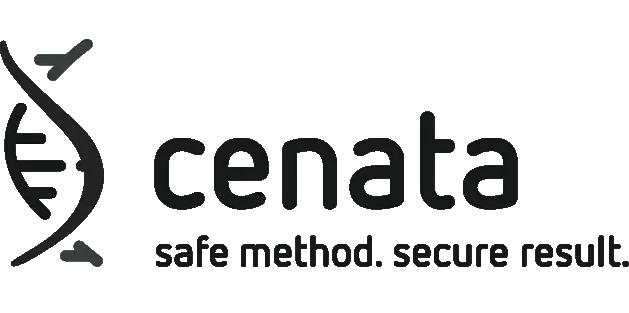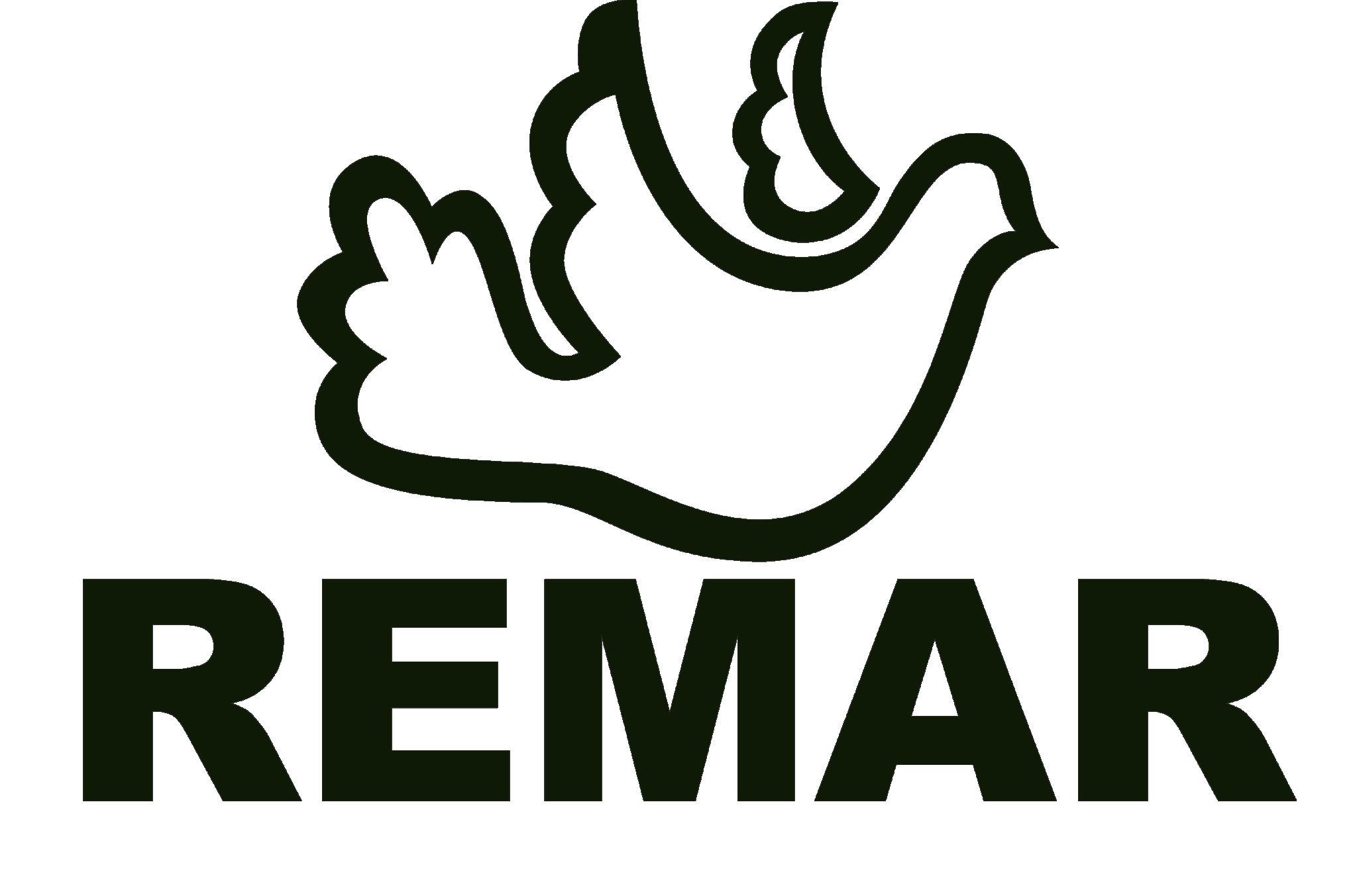SEO – Web design – Google Ads – Social media
Professional online store creation: Your path to e-commerce success
We develop high-selling, SEO-optimized online stores that inspire customers and increase sales – individually & strategically.
Individual marketing solutions
Graphic design
We create modern designs that visually strengthen your brand, create trust and are remembered for a long time.
Website creation
We create modern, search engine optimized websites that convince, create trust and generate leads.
Online marketing consulting
We analyze your marketing holistically, develop clear strategies and sustainably increase your online presence.
Accessibility
We check and optimize your website according to BFSG standards - for legal certainty, greater reach and better SEO.
Certification
We check your website according to over 100 SEO criteria and certify it for top performance and maximum visibility.
Domain & Hosting
We take care of domain, hosting and maintenance - everything from a single source, secure, fast and professionally managed.





Is your online sales potential going untapped?
Many companies launch an online store, but the hoped-for success does not materialize. Standard solutions or poorly planned projects often lead to frustration: the user experience (UX) is poor, the store is not found on Google or the technology quickly reaches its limits. As a result, valuable online sales revenue is lost while the competition grows digitally.
This is exactly where we come in as an experienced online marketing agency. SEO Marketing GmbH specializes in developing tailor-made online store solutions. We take a holistic view of your e-commerce presence and ensure that technology, design and marketing work together perfectly, whether for small or large companies.






A store that does more: Sell, convince, retain
A successful online store must do more than just list products. It must inspire customers, create trust and make the purchasing process as simple and pleasant as possible. A seamless user experience and a professional store design that reflects your brand are crucial for a high conversion rate.
Our experts design aesthetically pleasing and user-friendly interfaces. We guide your customers to their destination with captivating content, clear product information and intuitive navigation. We also attach great importance to search engine optimization for stores right from the start so that you can be found on Google.
Strategy instead of standard: your customized e-commerce success
Many people underestimate the strategic dimension of having an online store created. It’s not just about choosing the right store system such as Shopware, Shopify or WooCommerce. Rather, well thought-out conversion optimization, a scalable architecture and integration into your marketing processes are crucial for long-term success. That’s why your new website will be a success with us!
More turnover through optimized sales processes
Increase your conversion rate through targeted optimization: Text: We analyze and optimize the entire purchasing process – from product presentation to shopping cart to checkout. Through clear user guidance and confidence-building measures, we reduce abandoned purchases and maximize your sales potential when selling online.
Strong brand in the digital salesroom
Professional store design and excellent usability: Text: Your online store is your most important digital shop window. We develop a customized store design that strengthens your brand and creates trust. An outstanding user experience (UX) also ensures satisfied customers and promotes customer loyalty.
Scalable store systems and integrated SEO basis
We rely on proven and flexible store systems (Shopware, Shopify, WooCommerce, etc.) that grow with your company. We also lay the foundation for sustainable visibility and organic traffic through integrated search engine optimization (SEO for online stores).
Analyze your website for free – more visibility now!
Have your website analyzed free of charge and discover optimization potential immediately. Get a quick SEO check with clear tips for better rankings, more visibility and more customers - free of charge, professionally and without obligation.
Our structured path to your successful online store
A profitable online store is the result of strategic planning and professional implementation.

Strategy & store conception
We analyze the market, target group and competition. We then define the e-commerce strategy, select the right store system and plan the structure.

Design (UI/UX) & prototyping
Creation of an individual store design with a focus on brand identity and optimal user experience. Creation of clickable prototypes for approval.


Store development & integration
Technical implementation of the design, programming of special functions, payment integration and, if necessary, connection to merchandise management (WaWi) or CRM.

Testing, launch & optimization
Extensive testing of all functions, secure live operation, initial search engine optimization and training on store administration.

Ready to fully exploit your e-commerce potential?
Rely on professional online store creation that combines design, technology and marketing expertise. Get started in e-commerce now! Contact us for a no-obligation e-commerce consultation!
Frequently asked questions about creating an online store
What does it cost to have a professional online store created?
The costs for professional online store creation are very individual and depend heavily on the scope of the project. Factors such as the desired complexity of the design, the number of products, special functions (e.g. configurators, interfaces to merchandise management systems) and the scope of content creation have a significant influence on the price. After a detailed analysis of your requirements, we will provide you with a transparent and fair offer. Think of it as a strategic investment in your digital sales channel.
Which store system is the right one for my company (e.g. Shopware, Shopify, WooCommerce)?
Choosing the right store system is a key strategic decision. Whether Shopware, Shopify, WooCommerce or another e-commerce solution is best suited depends on your specific requirements: Size of your product range, planned growth targets, required interfaces, budget and previous technical knowledge. As an experienced agency, we provide you with vendor-independent advice and recommend the platform that best suits your business model and offers scalability for the future.
Why should I hire an agency and not use a store builder?
Store construction kits offer a quick start, but quickly reach their limits when it comes to customization, professional design, more complex functions and, in particular, search engine optimization. An agency develops a customized e-commerce solution that is precisely tailored to your brand and processes. We bring together strategic know-how, technological expertise and conversion optimization to build a store that not only works, but also sells and is successful in the long term.
Will my new online store automatically be found on Google?
When creating online stores, we attach great importance to a clean technical basis and an SEO-friendly structure (fast loading times, mobile optimization, logical structure). This is the basis for good rankings. However, search engine optimization for stores is an ongoing process. For sustainable top rankings and continuous organic traffic, a targeted, advanced SEO strategy (content marketing, link building, etc.) is essential, and we are also happy to support you with this.
Learn more
Professional online store creation | Agency for e-commerce
Strato, Woocommerce, Shopify and more — your webshop, our expertise
Together we will clarify your needs and requirements for the online store. We will then suggest a store system that meets these requirements. We will also configure the store system accordingly. We have particular expertise in the store systems Woocommerce, Shopify, Ionos, Jimdo, Strato, Shopware, Wix eCommerce and XT:Commerce. Let us advise you and find out which store system is right for you.
Summary
We plan, build, and optimize professional online stores on leading platforms (WooCommerce, Shopify, Strato, Shopware, Wix, etc.), selecting and configuring the right system for your needs. Our services span UX design, responsive implementation, payment and shipping setup, SEO and holistic marketing, analytics and conversion optimization, and long-term support. The content below outlines essential steps, tools, and legal requirements for e-commerce success—including market research, platform choice, product presentation, security and compliance, logistics, customer service, marketing, and ongoing analysis.
Appealing designs and content
Our designers combine aesthetics with user-friendliness. With designs that not only appeal to your customers, but also ideally reflect your company, your store will be remembered. User-friendly interfaces and responsive design ensure an excellent user experience — whether on mobile devices or the desktop.
Best conditions
The online stores of SEO Marketing GmbH offer the ideal foundation for the successful internet presence of your company. Sell your products and show who you are with your store. Whether payment systems, customer portals, live customer chats, digital or physical products: Our team will design your online store to suit your taste.
Your own online store
The SEO Marketing Agency has already helped many companies to achieve higher visibility and better rankings. Contact us today and let us advise you on our SEO services free of charge and without obligation.
Your own online store
- Individual online stores
- Beautiful designs
- Woocommerce, Shopify, Ionos, Jimdo, Strato and many more store systems!
- Simultaneous SEO optimization
Holistic marketing support
- Detailed marketing advice
- Holistic strategies for your company
- Long-term successes
- One contact for all concerns
Which steps are important when creating an online store?
Creating an online store requires careful planning, implementation and ongoing optimization in order to be successful. Here are the most important steps to consider when creating an online store:
Market research and target group analysis: Before you start creating your online store, it is important to carry out thorough market research and analyze your target group. Identify the needs, preferences and behaviors of your target group in order to tailor your offer accordingly.
Selecting the e-commerce platform: Choose a suitable e-commerce platform that meets your requirements and budget. Popular options include Shopify, WooCommerce (for WordPress), Magento and BigCommerce. When choosing, consider factors such as ease of use, features, scalability and integrations.
Domain and hosting registration: Register a suitable domain for your online store and choose a reliable hosting provider. A fast loading time and reliable server performance are crucial for the success of your online store.
Design and layout: Create an appealing and user-friendly design for your online store that reflects the brand identity and provides a positive user experience. Consider aspects such as navigation, product presentation, search function, shopping cart and checkout process.
Product catalog and descriptions: Create a well-structured product catalog and add detailed descriptions, high-quality images and relevant information for each product. Use meaningful product descriptions to arouse customers’ interest and support their purchase decision.
Payment methods and security: Integrate secure payment gateways and offer a variety of payment methods to meet the needs of your customers. Ensure that your online store is PCI compliant and that all necessary security measures are implemented to protect your customers’ sensitive data.
Shipping options and return policies: Specify shipping options and communicate clear return and exchange policies. Consider aspects such as shipping costs, delivery times and international shipping options to ensure customer satisfaction.
Marketing and advertising: Develop a marketing strategy to promote your online store and generate traffic. Use various channels such as search engine optimization (SEO), social media marketing, email marketing, paid advertising and influencer marketing to make potential customers aware of your store.
Analysis and optimization: Use analytics tools such as Google Analytics to track visitor behavior on your website and measure key metrics such as traffic, conversion rates and sales. Continuously optimize your offer, your website and your marketing strategy based on the collected data and insights.
Customer service and support: Provide excellent customer service and support to ensure customer satisfaction and build long-term relationships. Be available, respond quickly to requests and resolve issues professionally to build customer trust and loyalty.
By taking these steps into account when creating your online store and continuously optimizing them, you can build a successful e-commerce presence and achieve long-term success.
Which tools and analyses help to evaluate and optimize the conversion rate in an online store?
Evaluating and optimizing the conversion rate in an online store requires the use of various tools and analytics to understand visitor behavior and identify opportunities for improvement. Here are some important tools and analytics that can help:
Google Analytics: Google Analytics is a powerful analytics tool that provides detailed insights into visitor behavior on your website. With Google Analytics, you can track key metrics such as the number of visitors, page views, bounce rates, conversion rates and revenue. You can also set up goals to measure and optimize specific conversion paths.
Heatmaps: Heatmap tools such as Hotjar or Crazy Egg allow you to visually display the click and scroll behavior of visitors on your website. By analyzing heatmaps, you can see which areas of your website receive the most attention and which elements may be overlooked or ignored. On this basis, you can optimize your website to increase the conversion rate.
A/B testing: A/B testing is an effective way to test and compare different variations of your website or landing pages to find out which version achieves the best conversion rates. Tools such as Google Optimize, Optimizely or Visual Website Optimizer allow you to run A/B tests to optimize elements such as headlines, call-to-action buttons, colors, layouts and offers.
E-commerce tracking: If you run an e-commerce store, e-commerce tracking in Google Analytics is essential. It allows you to track the entire purchase process from product view to checkout and analyze key metrics such as transaction count, average order value and product performance. In this way, you can evaluate and optimize the effectiveness of your marketing campaigns and product pages.
Feedback tools: Feedback tools such as surveys, ratings and review systems allow you to get direct feedback from your customers and better understand their needs, wants and concerns. By integrating feedback tools, you can identify problems, improve the user experience and increase the conversion rate.
Exit-intent pop-ups: Exit-intent pop-ups are pop-ups that appear when a visitor is about to leave your website. These popups can be used to offer deals, discounts or newsletter sign-ups and encourage visitors to stay on your website and convert.
By using these tools and analyses to evaluate and optimize the conversion rate in your online store, you can better understand visitor behaviour, identify weak points and make targeted optimizations to increase the conversion rate and maximize sales.
What legal aspects need to be considered when operating an online store?
When operating an online store, various legal aspects must be taken into account in order to comply with the law and minimize legal risks. Here are some important legal aspects to consider when operating an online store:
Legal notice requirement: In most countries, there is a legal requirement for a website to include a legal notice that contains information about the operator of the website as well as contact details such as name, address, telephone number and email address. Make sure that your online store has a complete and easily accessible legal notice.
Data protection and privacy policy: If you collect and process customers’ personal data, you must comply with data protection laws and provide a privacy policy that contains information about what data is collected, how it is used and what rights users have in relation to their data.
Right of withdrawal and return: In many countries, consumers have the right to withdraw from contracts or return goods within a certain period of time. Make sure that your online store contains a clear and comprehensible withdrawal and return policy that meets the legal requirements.
General Terms and Conditions (GTC): Formulate general terms and conditions (GTC) that define the legal framework for the purchase of goods or services in your online store. The GTC should contain important information such as delivery terms, payment terms, warranty and liability.
Price Indication Ordinance (PAngV): Observe the provisions of the Price Indication Ordinance (PAngV), which sets out requirements for the transparent pricing of goods and services in online retail. Clearly state all prices including taxes and shipping costs.
Copyright and trademark law: Make sure that you do not use copyrighted content without the necessary rights and avoid trademark infringement by not using protected trademarks without permission. Create original content and only use images, text and logos for which you have the appropriate rights.
Payment processing and data protection: Use secure payment gateways and ensure that your customers’ sensitive payment information is encrypted and handled securely. Comply with applicable data protection laws and ensure that you take the necessary measures to protect your customers’ data.
Disclaimer: Use a disclaimer to limit your liability and minimize legal risks. A disclaimer can contain important legal aspects such as limitations of liability, warranty disclaimers and disclaimers for external links.
It is important to find out about the applicable laws and regulations in your country or region and, if necessary, seek legal advice to ensure that your online store meets all legal requirements and minimizes legal risks. A properly managed online store can build customer trust and enable long-term success.
Introduction
Introduction to the topic of online stores
In a world that is increasingly digitized, online commerce has brought a revolutionary change in the way we shop and do business. Online stores have become an integral part of modern commerce and offer a multitude of opportunities for businesses and consumers alike. In this introduction, we will look at the importance of online commerce in today’s world and provide an overview of why online stores play an important role in the global economy.
Introduction to the topic of online stores:
The term “online store” refers to a digital platform on which companies can offer and sell their products or services online. These virtual stores allow customers to buy products from the comfort of their own home without having to physically visit a store. Online stores range from small, independent e-commerce websites to large online marketplaces that offer a variety of products and services.
The importance of online trading today:
Online retail has experienced rapid development in recent years and has become an important driver of economic growth and innovation. In an increasingly digitalized world, consumers are increasingly looking for convenient and time-saving shopping options that they can use from anywhere. Online stores offer just that: the opportunity to shop around the clock without being tied to opening hours or having to travel physical distances.
The importance of online commerce spans various industries and sectors, from retail and fashion to electronics, household goods, services such as travel and finance. For companies, online stores offer a global reach and the opportunity to tap into new markets while reducing operating costs and working more efficiently.
In addition, online stores also have a significant influence on consumer behavior and customer expectations. Consumers today expect a seamless and personalized shopping experience enabled by innovative technologies and tailored offers. Online stores play a crucial role in meeting these demands and promoting customer loyalty and satisfaction.
Overall, online retail has become an indispensable part of the modern economy and is expected to continue to grow and develop. Online stores offer businesses the opportunity to present themselves on a global scale and reach customers in new and innovative ways. In the following sections, we will take a closer look at various aspects of online stores and their impact on businesses and consumers.
Advantages of online stores
Online stores offer a variety of benefits for businesses and customers alike. In this section, we will take a closer look at some of the most important advantages of online stores:
- Convenience for customers:
A key advantage of online stores is the convenience they offer customers. With just a few clicks, customers can buy products or services from anywhere, be it from home, on the move or even from their workplace. There is no longer a need to visit physical stores and deal with parking, queues and opening hours. This flexibility and accessibility make online stores an attractive option for busy consumers looking for time-saving shopping opportunities.
- Global accessibility and customer loyalty:
Another significant advantage of online stores is their global accessibility and the ability to reach customers all over the world. Unlike physical stores, online stores are not tied to geographical locations and can reach customers regardless of their location. This global reach allows companies to tap into new markets and expand their customer base. In addition, online stores offer the opportunity for customer loyalty through personalized offers, recommendations and loyalty programs that can improve the shopping experience and strengthen customer loyalty to the brand.
- Lower operating costs compared to physical stores:
Online stores offer companies the opportunity to reduce their operating costs as they do not have expensive rental and operating costs for physical stores. Not having physical stores allows companies to pass these savings on to customers or invest in other areas such as marketing, product development or customer service. In addition, online stores offer the opportunity to automate processes such as warehousing, order fulfillment and shipping, which increases efficiency and further reduces operating costs.
Overall, online stores offer a variety of benefits, including convenience for customers, global accessibility and customer loyalty, and lower operating costs compared to physical stores. These benefits make online stores an attractive option for companies looking to grow their business and expand their offerings, as well as for customers looking for convenient and time-saving shopping options.
Choosing the right e-commerce platform
Choosing the right e-commerce platform is a crucial step for the success of an online store. In this section, we take a look at different e-commerce platforms such as Shopify, WooCommerce, Magento and others, as well as the criteria for choosing the right platform for individual needs:
Overview of various e-commerce platforms:
Shopify: Shopify is one of the most popular e-commerce platforms and is particularly suitable for small to medium-sized businesses. It offers a user-friendly interface, a variety of templates and a wide range of features, including integrated payment processing, product management and marketing tools.
WooCommerce: WooCommerce is an open source e-commerce platform available as a plugin for WordPress. It offers high flexibility and customization options as well as tight integration with other WordPress features. WooCommerce is particularly suitable for companies that already operate a WordPress website and are looking for a seamless e-commerce solution.
Magento: Magento is a powerful e-commerce platform that is particularly suitable for medium to large companies. It offers extensive functionality, scalability and customization options, but is also more complex to set up and maintain compared to other platforms.
BigCommerce: BigCommerce is a cloud-based e-commerce platform that offers a wide range of features, including integrated payment processing, product management, marketing tools and more. It is particularly suitable for companies looking for a scalable solution with comprehensive support.
Criteria for selecting the right platform for individual needs:
When choosing the right e-commerce platform, companies should consider several important criteria:
Budget: The costs for setting up and operating the platform play an important role. Companies should ensure that the chosen platform fits into their budget and is scalable in the long term.
User-friendliness: The user-friendliness of the platform is crucial for a smooth setup and management of the online store. Companies should choose a platform that offers an intuitive user interface and simple administration tools.
Functionality and expandability: The chosen platform should offer a wide range of functions that meet the company’s individual requirements. In addition, it is important that the platform is flexible and expandable to meet future growth and customization requirements.
Integrations: The ability to integrate with other systems and tools, such as payment processing providers, marketing tools and inventory management systems, is also important. Companies should ensure that the chosen platform offers seamless integrations with the required third-party services.
By taking these criteria into account and carefully evaluating different e-commerce platforms, companies can choose the right platform for their individual needs and build a successful online store.
Design and user experience in the online store
An appealing design and a positive user experience are crucial for the success of an online store. In this section, we will explain the importance of design and user experience for the success of an online store and present best practices for an appealing design and user-friendly navigation:
The importance of design and user experience for the success of an online store:
The design of an online store plays a crucial role in creating a positive first impression and in attracting and retaining customers. An aesthetically pleasing design can boost customer confidence, increase brand credibility and improve the shopping experience. In addition, an intuitive user experience is crucial for customer satisfaction and online store conversion rates. User-friendly navigation and a clear structure of content can help customers find the products they want quickly and easily and complete the ordering process.
Best practices for an appealing design and user-friendly navigation:
Clear and appealing design: A clean and professional design is crucial for the success of an online store. Companies should look for high-quality images, clear fonts and a consistent color palette to create an appealing visual appearance.
Mobile optimization: In view of the growing proportion of mobile users, it is important that the online store is optimized for different devices and screen sizes. A responsive design enables an optimal display and user experience on all end devices, from desktop computers to smartphones.
Intuitive navigation: Clear and intuitive navigation is crucial to help customers find the products they are looking for quickly and easily. Companies should implement a clear category structure and search functions to facilitate navigation and improve the findability of products.
Clear product pages: Product pages should contain all relevant information, including high-quality images, detailed descriptions, prices and availability. Companies should ensure that product pages are clearly laid out and that important information is easily accessible to make it easier for customers to make a purchase decision.
Fast loading times: Fast loading times are crucial for customer satisfaction and online store conversion rates. Companies should ensure that their website and product pages load quickly to avoid customer frustration and reduce bounce rates.
By implementing these best practices for appealing design and user-friendly navigation, companies can improve their customers’ shopping experience, increase conversion rates and build long-term customer relationships. A well-designed and user-friendly online store can make a significant contribution to a company’s success in e-commerce.
Product presentation and description
Effective product presentation and description are crucial to the success of an online store. This section explains important aspects of product presentation, including high-quality images and detailed descriptions, as well as tips for optimizing product pages for search engines and conversions:
Important aspects of product presentation:
High-quality images: High-quality product images are essential to capture customers’ interest and motivate them to buy. Companies should use high-resolution images that show the product from different angles and highlight important details. Zoom functions and 360-degree views can further enhance the shopping experience.
Detailed descriptions: Detailed product descriptions provide customers with important information about the product, its features, materials, dimensions, uses and more. Companies should use informative and engaging descriptions that highlight the benefits of the product and answer potential customer questions.
Product reviews and customer feedback: Integrating product reviews and customer feedback on product pages can increase customer confidence and help them make informed purchasing decisions. Companies should encourage customers to leave reviews and feedback to increase the credibility of the online store.
Tips for optimizing product pages for search engines and conversions:
Keyword optimization: Companies should use relevant keywords in the titles, descriptions and meta tags of product pages to improve search engine discoverability. Keyword research can help to identify and use the right keywords for each product.
Page speed optimization: Fast loading times are crucial for user experience and search engine optimization. Companies should ensure that their product pages load quickly by optimizing images, using caching and improving server performance.
Use of structured data: Using structured data and markup schemas can help search engines better understand product page content and display it more prominently in search results. Companies should implement structured data for products such as pricing, availability, reviews and more.
Clear calls to action: Clear and engaging calls-to-action on product pages can increase conversion rates by encouraging customers to purchase or further explore the online store. Companies should use clear call-to-actions that lead the customer to a desired action, such as “Buy now” or “Learn more”.
By presenting and describing products effectively and optimizing product pages for search engines and conversions, companies can improve their customers’ shopping experience, increase the discoverability of their products and boost online store conversion rates. A well-optimized online store can make a decisive contribution to increasing sales and maximizing success in e-commerce.
Payment options and security
The selection of suitable payment methods and ensuring the security of sensitive data are crucial aspects for the success and trust of customers in an online store. This section covers popular payment methods for online stores and their integration as well as security aspects in e-commerce and measures to protect sensitive data:
Popular payment methods for online stores and their integration:
Credit card payment: Credit card payment is one of the most frequently used payment methods in e-commerce. It allows customers to store their credit card details securely and make purchases conveniently online. The integration of payment gateways such as PayPal, Stripe or Braintree facilitates the processing of credit card payments in the online store.
Bank transfer: Bank transfers offer a secure and trustworthy payment option for customers who do not want to or cannot use a credit card. Companies can offer bank transfers as a payment method and provide customers with the necessary information such as account details and purpose of use.
E-wallets: E-wallets such as PayPal, Apple Pay, Google Pay and Amazon Pay are becoming increasingly popular and offer customers a quick and convenient way to pay online. The integration of e-wallets into the online store enables customers to make payments securely and easily using their preferred payment methods.
Security aspects in e-commerce and measures to protect sensitive data:
SSL encryption: The implementation of SSL (Secure Sockets Layer) encryption technology on the online store’s website ensures the secure transmission of sensitive data, such as payment information, between the customer’s browser and the online store’s web server.
PCI-DSS compliance: Compliance with the Payment Card Industry Data Security Standard (PCI-DSS) is essential to ensure the security of credit card data. Companies should ensure that their payment processing systems are PCI-DSS compliant and regularly checked for security vulnerabilities.
Two-factor authentication: Implementing two-factor authentication for customer accounts and payment transactions increases security and prevents unauthorized access to sensitive data. Customers should be able to use additional security measures such as SMS codes, tokens or biometric authentication.
Regular security audits: Companies should conduct regular security audits and penetration tests to identify and address potential security gaps and vulnerabilities in their systems. Working with experienced security experts and implementing best practices for data protection are crucial for the security of sensitive data in e-commerce.
By integrating popular payment methods and implementing effective security measures, online stores can strengthen the trust of their customers and ensure the security of sensitive data. A secure and reliable payment process is an essential part of a successful online store and helps to build long-term customer relationships and maximize e-commerce success.
Shipping and logistics
Efficient shipping and logistics processes are crucial to satisfying customers and ensuring the success of an online store. This section covers strategies for optimizing the shipping process and reducing shipping costs as well as the integration of shipping service providers and tracking options for customers:
Strategies for optimizing the shipping process and reducing shipping costs:
Optimize warehouse locations: Placing inventory in strategic locations can shorten delivery times and reduce shipping costs. Companies should analyze demand and distribute inventory accordingly to optimize the shipping process.
Optimize shipping costs: Selecting suitable shipping service providers and rates can help to reduce shipping costs. Companies should compare the prices and services of different shipping service providers and negotiate contracts in order to benefit from more favorable conditions.
Optimize packaging: Using appropriate packaging materials and sizes can reduce shipping costs and improve the efficiency of the shipping process. Companies should use lightweight and space-saving packaging to optimize shipping and minimize packaging materials.
Integration of shipping service providers and tracking options for customers:
Integration of shipping service providers: The integration of shipping service providers into the online store enables seamless handling of shipping processes and automated tracking of shipping status and deliveries. Companies should use APIs or plugins to enable direct integration with shipping service providers such as DHL, UPS, FedEx or other local providers.
Tracking options for customers: Providing tracking options for customers allows them to track the status of their deliveries in real time and know the expected delivery date. Companies should provide customers with tracking numbers and links to tracking tools to promote transparency and customer satisfaction.
Customer communication: Companies should proactively inform customers about the shipping status of their orders and communicate in a timely manner in the event of delays or problems. Providing email notifications, SMS notifications or in-app notifications helps customers stay informed and gain confidence in the shipping process.
By implementing strategies to optimize the shipping process and reduce shipping costs, as well as integrating shipping service providers and tracking options, companies can improve the efficiency of their shipping and logistics management and increase customer satisfaction. A smooth and transparent shipping process is an essential part of a successful online store and helps to build long-term customer relationships and maximize e-commerce success.
Customer service and support
Effective customer service is crucial for customer satisfaction and retention in an online store. This section discusses the importance of effective customer service for customer satisfaction and retention, as well as the implementation of live chat, email support and returns processes:
The importance of effective customer service for customer satisfaction and loyalty:
Promote customer satisfaction: Effective customer service contributes significantly to customer satisfaction by providing quick and helpful support and proactively resolving customer issues or concerns. Satisfied customers are more likely to store online again and leave positive reviews, which in turn strengthens brand reputation and attracts new customers.
Strengthen customer loyalty: Personal and courteous customer service can strengthen customer loyalty and build long-term customer relationships. Companies should view customer interactions as an opportunity to build customer loyalty and strive to create positive and memorable experiences that encourage customers to remain loyal to the online store.
Implementation of live chat, email support and returns processes:
Live chat: Implementing live chat allows customers to communicate with a customer service representative in real time and receive immediate support. Live chat provides a quick and efficient way to answer customer queries, solve problems and improve the shopping experience.
Email support: Email support is a popular contact method for customers to ask questions, report problems or provide feedback. Companies should set up an efficient email support service that answers customer queries promptly and offers personal and professional customer care.
Return processes: Transparent and customer-friendly return processes are important to boost customer confidence and make purchasing decisions easier. Companies should communicate clear return policies, offer simple return procedures and support customers in returning products in an uncomplicated and stress-free manner.
By implementing effective customer service and support, including live chat, email support and customer-friendly returns processes, companies can increase customer satisfaction, strengthen customer loyalty and build long-term customer relationships. Outstanding customer service is an essential part of a successful online store and helps to improve brand image and maximize e-commerce success.
Marketing and customer acquisition
Effective marketing is crucial to attracting new customers and increasing sales for an online store. This section covers various marketing strategies for customer acquisition, including search engine optimization (SEO), social media marketing and email marketing, as well as how to use discounts, special offers and promotions to increase sales:
Various marketing strategies for customer acquisition:
Search engine optimization (SEO): By optimizing their website for search engines, companies can improve their visibility in search results and drive qualified traffic to their online store. SEO includes the optimization of keywords, metadata, content quality, loading times and backlink profiles in order to achieve a higher ranking in search engines.
Social media marketing: Social media platforms offer an effective way to engage with potential customers, increase brand awareness and drive traffic to the online store. Companies should create targeted content, post regularly, interact with followers and run ads to reach and engage their audience.
Email marketing: Email marketing is a powerful tool for customer retention and acquisition. Companies can use newsletters, offers, product announcements and personalized messages to target customers and motivate them to visit the online store. The segmentation of email lists and the automation of campaigns make it possible to send relevant and targeted content to the right recipients.
Use of discounts, special offers and promotions:
Discounts and special offers: The use of discounts, special offers and vouchers can increase sales and motivate customers to store online. Companies can use time-limited promotions, seasonal offers, loyalty programs and voucher campaigns to attract customers and encourage them to buy.
Promotions: Running targeted promotions and campaigns can draw the attention of potential customers to the online store and increase traffic and conversion rates. Companies can run promotions through various channels such as search engine ads, social media advertising, influencer marketing and partnerships with other companies to reach their target audience and attract new customers.
By implementing various marketing strategies for customer acquisition and utilizing discounts, special offers and promotions, companies can strengthen their brand presence, promote customer loyalty and increase their online store’s sales. Well-planned and implemented marketing is an essential part of a successful online store and helps to build long-term customer relationships and maximize e-commerce success.
Analysis and optimization
Continuous analysis and optimization are crucial to maximize the success of an online store. This section covers the use of analytics tools to monitor visitor flows, sales and conversion rates as well as the continuous optimization of the online store based on the insights gained:
Use of analysis tools to monitor visitor flows, sales and conversion rates:
Web analytics tools: By using web analytics tools such as Google Analytics, companies can monitor key metrics such as visitor numbers, page views, dwell time, bounce rates and conversion rates. This data provides valuable insights into user behavior and the performance of the online store.
E-commerce tracking: E-commerce tracking enables companies to track the entire sales process in the online store, including product views, shopping cart actions and transactions. By analyzing sales data, companies can recognize trends, identify sources of revenue and evaluate the effectiveness of marketing campaigns.
Continuous optimization of the online store based on the insights gained:
Usability optimization: By analysing user behaviour and interactions, companies can identify weaknesses in the user experience and optimize the online store accordingly. This can include improving navigation, optimizing product pages, simplifying the checkout process and adapting call-to-actions.
Content optimization: Analyzing page views, dwell time and conversion rates allows companies to evaluate content performance and optimize content in a targeted manner. This can include updating product descriptions, creating relevant blog content and adapting marketing messages to increase relevance and effectiveness.
Marketing optimization: The evaluation of marketing data helps companies to assess the effectiveness of their marketing campaigns and use marketing budgets more efficiently. Based on the insights gained, companies can adapt their marketing strategies, better address target groups and increase conversion rates.
By continuously analyzing and optimizing the online store, companies can improve their performance, optimize the user experience and increase sales. The use of analytics tools and continuous adaptation based on the insights gained are crucial to succeeding in the competitive e-commerce environment and achieving long-term success.
Get in touch with us!
Do you want more visibility, more leads and sustainable growth? Then we are the right partner for you!
Whether you have questions, would like advice or want to get started right away - we look forward to getting to know you and starting your digital mission together.
Just write to us or give us a call - we are here for you!


















